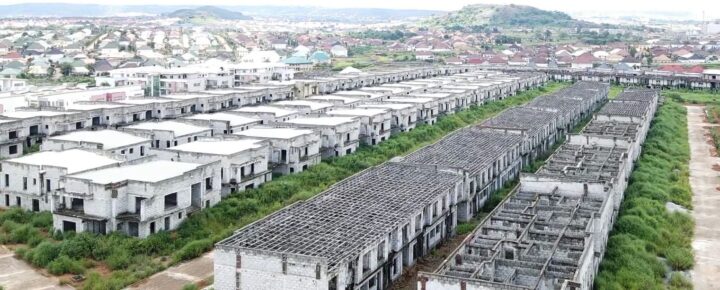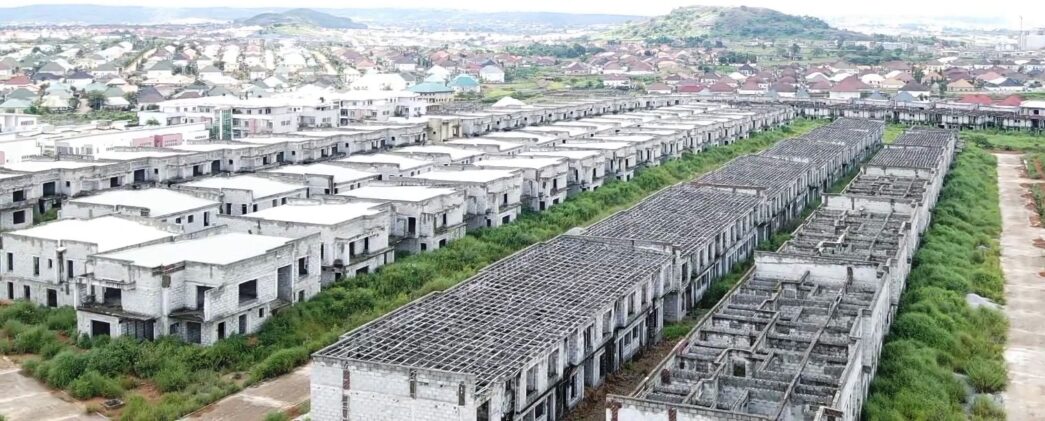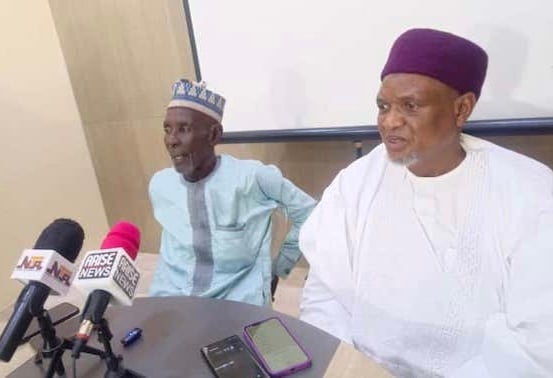Abuja duplexes forfeited to EFCC
The house of representatives has asked the federal government to prioritise low and middle-income earners, internally displaced persons (IDPs) and vulnerable groups in the allocation of the 753 duplexes in Abuja.
The green chamber passed the resolution during Tuesday’s plenary following the adoption of a motion sponsored by Jafaru Leko, a Bauchi lawmaker.
BACKGROUND
In May, Ola Olukoyede, chairman of the Economic and Financial Crimes Commission (EFCC), handed over the forfeited estate to Ahmed Dangiwa, housing and urban development minister.
Advertisement
The uncompleted duplexes, located in the Lokogoma district of the federal capital territory (FCT), were forfeited by Godwin Emefiele, former governor of the Central Bank of Nigeria (CBN).
Dangiwa said President Bola Tinubu directed that the recovered estate be completed and made available to the Nigerian public through a “transparent and accountable” process.
THE MOTION
Advertisement
Moving the motion, Leko said if properly managed, the estate could “meaningfully contribute to addressing the severe housing deficit in Nigeria currently estimated at over 17 million housing units”, particularly in urban centres like Abuja.
He said without a transparent, accountable, and equitable framework for allocating such public assets, the recovered properties risk falling into the hands of privileged elites, “defeating the purpose of asset recovery and denying ordinary Nigerians access to decent housing”.
“The absence of a publicly available beneficiary selection process or legislative oversight over such transfers may erode public confidence in the sincerity of the government’s anti-corruption and social justice programmes,” he said.
The legislator said it is the constitutional obligation of government at all levels to ensure the welfare of citizens, particularly in securing adequate shelter as enshrined under chapter II of the constitution.
Advertisement
The motion was adopted when Benjamin Kalu, the deputy speaker, called for a voice vote.
Consequently, the house asked the ministry of housing and urban development to put together and publish a transparent and inclusive allocation framework for the recovered estate, prioritising low and middle-income earners, IDPs, and vulnerable groups and submit a comprehensive report to the house within 60 days on the proposed use, allocation criteria, and beneficiary selection for the estate.
The green chamber also asked the ministry to institutionalise a national database of forfeited assets, with mechanisms for public tracking and civil society oversight, to promote accountability and public trust.
Advertisement












